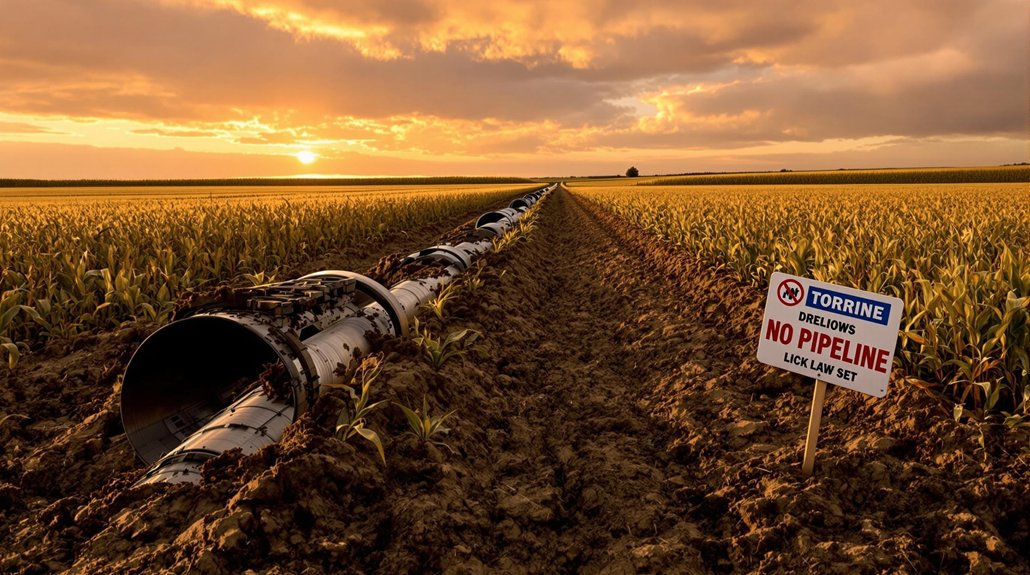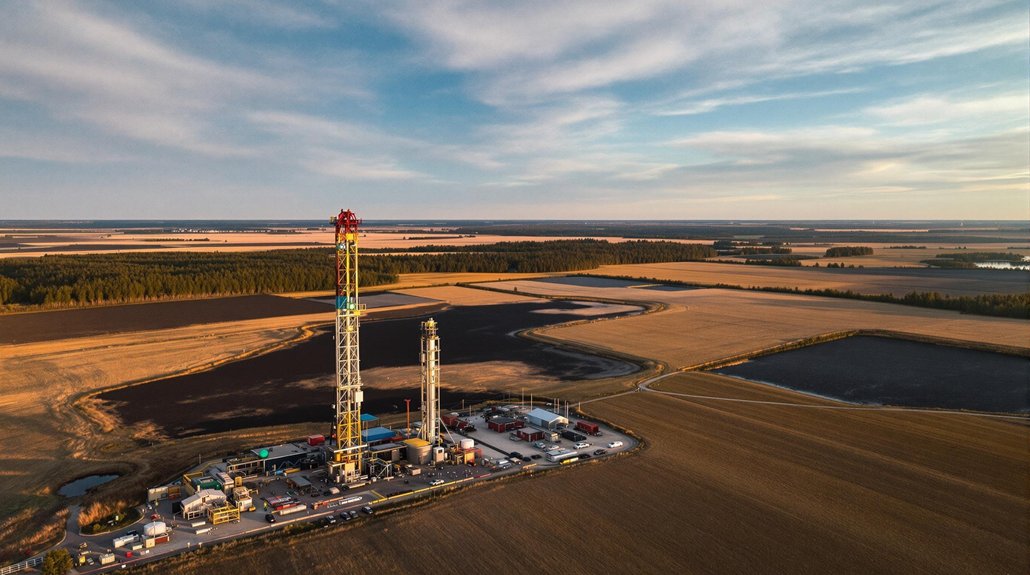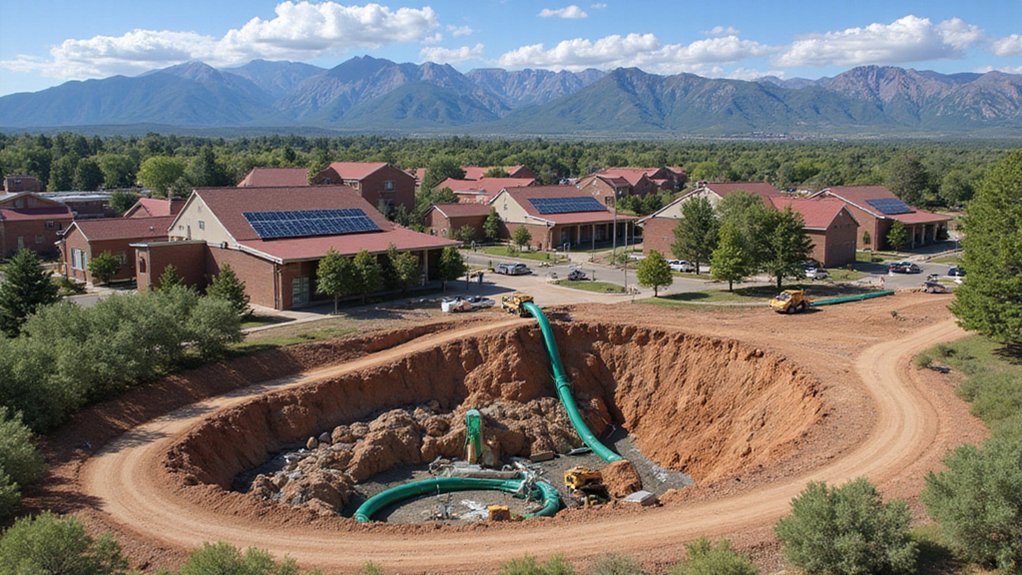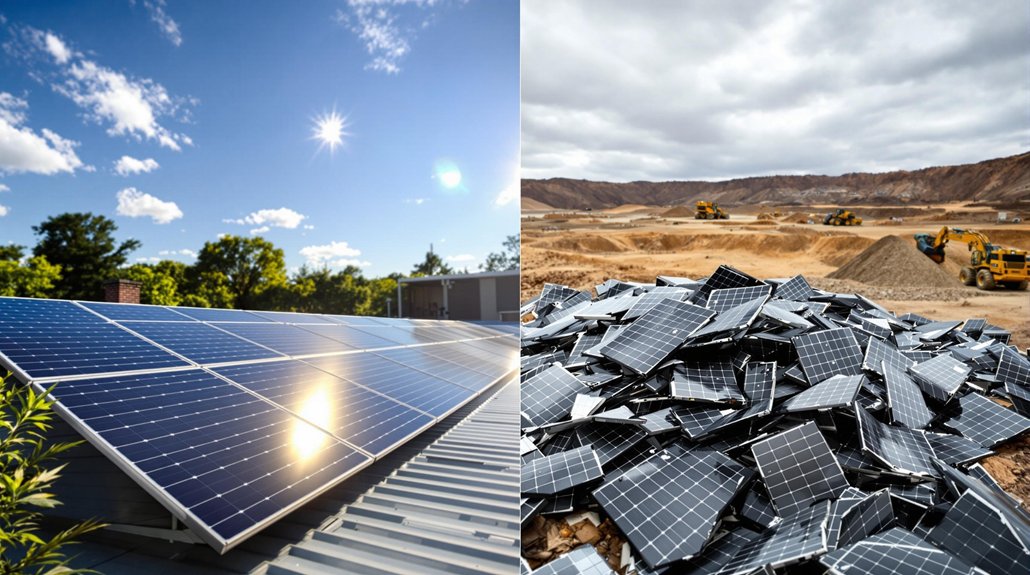Iowa legislators are considering multiple bills to restrict carbon dioxide pipelines, with House File 943 aiming to ban eminent domain for these projects on farmland. Republican lawmakers have pushed for property rights protections, while Democrats tried unsuccessfully to force floor debates. Summit Carbon Solutions’ $8.9 billion pipeline project faces growing opposition despite potential climate benefits. Environmental groups like Sierra Club support stricter regulations while opposing climate change consideration restrictions. The debate highlights tensions between clean energy goals and landowner rights.
Iowa lawmakers are wrestling with several bills focused on carbon dioxide pipelines, as the battle over property rights intensifies in the state. The Republican-led legislature has advanced multiple measures that would limit the use of eminent domain for CO2 pipeline projects, despite their potential climate benefits.
House File 943, which bans eminent domain on agricultural land for CO2 pipelines, has gained significant support. Other bills moving forward include HF780, which limits pipeline permits to 25 years, and HF639, requiring insurance coverage for pipeline construction and discharge.
A group of 41 Republican lawmakers has urged restrictions on eminent domain for these projects. Rep. Helena Hayes has been vocal about preserving property rights, while Rep. Cindy Golding has expressed concerns about Summit Carbon Solutions‘ pipeline project.
Summit’s $8.9 billion plan involves a 2,500-mile pipeline network across multiple states. The project aims to transport liquefied CO2 from ethanol plants to North Dakota for underground storage. Despite facing regulatory challenges, the company remains committed to completing the project.
In the Senate Commerce Committee, Senator Mike Bousselot has committed to negotiating eminent domain legislation. Several Republican senators prefer continued negotiations over immediate action, while Democrats pushed unsuccessfully for floor debates on pipeline-related bills. HF790 aims to ensure full IUC presence during live testimony phases of pipeline hearings.
The Sierra Club has expressed support for several of the pipeline regulation bills, including HF943, HF780, HF639, and HF923, which protects intervenors in contested cases before the Utilities Commission. However, the environmental group opposes HF302, which would forbid consideration of climate change in pipeline permits. The limitations on carbon capture technology could impact climate goals, as studies show carbon capture systems increase electricity generation costs by 30-70% but remain important for achieving emissions reductions.
South Dakota recently passed a law banning eminent domain for CO2 pipelines, prompting Summit to file a motion to suspend its pipeline permit application in that state. Despite this setback, Summit hasn’t fully halted its multi-state project.
As negotiations continue within the Republican party on eminent domain legislation, the debate highlights the tension between clean energy infrastructure development and traditional property rights in the Midwest. These pipeline discussions are expected to remain active until the legislative session ends on May 2, coinciding with the conclusion of per diem expenses.









